Did you know that 80% of what we believe about women's health is based on myths?
It's time to separate fact from fiction and debunk the top 10 women's health myths. In this article, we will focus on three key areas: diet, hormonal balance, and the impact of natural remedies.
Many women believe that they need to follow a strict diet to stay healthy. However, we will show you why restrictive diets are not the answer. You don't have to give up your favorite foods to maintain a healthy lifestyle.
Hormonal imbalances are another common concern for women. We will discuss the truth behind hormonal fluctuations and shed light on what really affects your hormone levels. Natural remedies have gained popularity in recent years, but do they really work? We will explore the evidence behind popular remedies and separate the myths from the facts.
Join us as we debunk these common women's health myths and give you the knowledge you need to make informed decisions about your health. Don't let misinformation hold you back. It's time to take charge of your well-being.
Top 10 Women's Health Myths
Myth 1: Eating fat makes you fat
Contrary to popular belief, eating fat does not necessarily make you fat. In fact, healthy fats are an essential part of a balanced diet. They provide energy, support cell growth, and help with the absorption of vitamins. The key is to focus on consuming good fats, such as those found in avocados, nuts, and olive oil, while moderating the intake of unhealthy fats found in processed foods.
Myth 2: Carbs are always bad for you
Carbohydrates often get a bad rap, but not all carbs are created equal. Whole grains, fruits, and vegetables are rich in complex carbohydrates that provide essential nutrients and fiber. These are important for maintaining energy levels and supporting overall health. The key is to choose whole, unprocessed sources of carbohydrates and avoid refined sugars and flours.
Myth 3: Women need to eat less to lose weight
The idea that women need to restrict their calorie intake to lose weight is a common misconception. In reality, sustainable weight loss is not about eating less but about eating right. By focusing on nutrient-dense foods, portion control, and mindful eating, women can achieve their weight loss goals without depriving themselves or compromising their health.
Myth 4: Hormonal imbalances are normal and untreatable
While hormonal fluctuations are a natural part of a woman's life, persistent imbalances can cause various health issues. It is important to recognize the signs and seek appropriate treatment. Hormonal imbalances can be managed through lifestyle changes, dietary adjustments, and in some cases, hormone replacement therapy. Consulting with a healthcare professional is crucial in identifying and addressing these imbalances.
Myth 5: Birth control pills are the only solution for hormonal balance
Although birth control pills are commonly prescribed to regulate hormones, they are not the only solution. Lifestyle factors, such as stress management, regular exercise, and a balanced diet, play a significant role in maintaining hormonal balance. Additionally, alternative treatments like herbal supplements and acupuncture have shown promising results in helping women manage their hormones naturally.
Myth 6: Exercise can't improve hormonal balance
Exercise has a profound impact on hormonal balance. Regular physical activity helps regulate hormone levels, reduce stress, and promote overall well-being. Engaging in activities like strength training, cardiovascular exercises, and yoga can have positive effects on hormone production and regulation. It's important to find a balance between intensity and recovery to optimize hormonal health.
Myth 7: Natural remedies have no scientific evidence to support their effectiveness
Contrary to popular belief, many natural remedies have been backed by scientific research. For example, herbal supplements like Tulsi, also known as holy basil, have been used for thousands of years for their medicinal properties in Ayurvedic medicine. It is considered beneficial for metabolic health, including lowering blood sugar and improving LDL cholesterol and blood pressure. Additionally, as an adaptogen, it can help manage stress, anxiety, and fatigue. However, it is essential to consult with a health professional before incorporating natural remedies into your routine to ensure safety and effectiveness.
Myth 8: Menopause is a time of decline and suffering
Menopause is often portrayed as a time of decline and suffering, but it doesn't have to be. While menopause brings about hormonal changes, it is a natural transition in a woman's life. By adopting a healthy lifestyle, seeking appropriate medical guidance, and exploring natural remedies, women can navigate this stage with grace and minimal discomfort.
Myth 9: Natural remedies are ineffective compared to pharmaceuticals
Natural remedies can be highly effective in managing various women's health concerns. For example, studies have shown that certain herbs and supplements can alleviate menstrual pain and regulate menstrual cycles. It's important to consider individual factors, preferences, and consult with healthcare professionals to determine the most suitable approach for each person's unique needs.
Myth 10: You can't prevent or manage menstrual pain naturally
Menstrual pain is often seen as an inevitable part of being a woman, but there are natural ways to prevent and manage it. Incorporating lifestyle changes like regular exercise, stress management techniques, and herbal remedies can help alleviate menstrual pain and promote overall menstrual health. It's essential to listen to your body, experiment with different approaches, and seek professional guidance when needed.
Conclusion:
Empowering women with accurate information
In conclusion, debunking women's health myths is essential for empowering women to make informed decisions about their health. By dispelling misconceptions surrounding diet, hormonal balance, and natural remedies, women can take charge of their well-being. Remember, knowledge is power, and with the right information, women can prioritize their health and lead fulfilling lives. Don't let misinformation hold you back. It's time to debunk the myths and embrace a healthier future.






